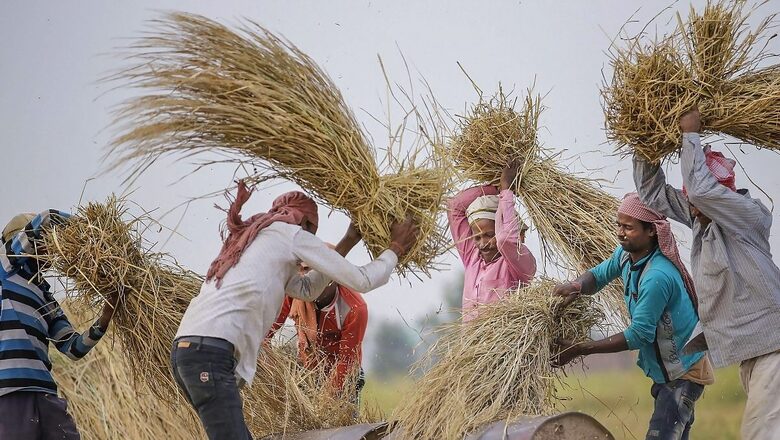
views
The Narendra Modi government’s track record in empowering India’s agricultural community is unparalleled, with the Centre launching a slew of initiatives to bolster the livelihoods of farmers.
With the release of the 17th installment of Prime Minister Kisan Samman Nidhi, Rs 20,000 crore has been distributed to 9.3 crore farmers. So far, Rs 3 lakh crore has been distributed to a total of 12,33,00,000 farmers.
The PM-KISAN offers an annual benefit of Rs 6,000, distributed in three equal instalments of Rs 2,000 every four months, directly into the bank accounts of eligible farmers through the Direct Benefit Transfer (DBT) system.
The MSP (Minimum Support Price) for Kharif crops for 2024-25 has also been increased, benefitting 12 crore farmers by approximately Rs 2 lakh crore.
The prime minister also approved the Polavaram Irrigation Project in Andhra Pradesh with an allocation of Rs 12,100 crore.
The Union government, under Modi’s leadership, approved seven major schemes with a total outlay of Rs 14,200 crore, including Digital Agriculture Mission to enhance efficiency and productivity in the agricultural sector; Completion of the draft policy of the new National Cooperative Policy, prepared by a national-level committee; and MoU between the National Cooperative Organics Limited (NCOL) and the Uttarakhand Organic Commodity Board. NCOL will purchase organic produce from Uttarakhand’s farmers at rates appropriate for farmers and an appropriate share of the profits will be directly deposited into the farmers’ accounts.
Apart from these steps, the conversion of cooperative sugar mills’ ethanol production units into multi-feed facilities will enable ethanol production from maize as well.
The government also took the crucial decision of removing Minimum Export Price (MEP) on onions and Basmati rice and reducing the export duty on onions from 40 per cent to 20 per cent. They also increased the duty on crude palm, soybean, and sunflower oils from 12.5 per cent to 32.5 per cent, while also increasing the duty on their refined oils from 13.75 per cent to 35.75 per cent.
The government also expanded the Agriculture Infrastructure Fund Scheme to strengthen agricultural infrastructure. In the erstwhile state of Jammu and Kashmir, several agricultural schemes and development projects were initiated worth Rs 3,300 crore.
During his first visit to Varanasi, PM Modi honoured 30,000 Krishi Sakhis from self-help groups for their role in agriculture. He also approved the Rs 2,000 crore ‘Mission Mausam’ to create a weather and climate-resilient India. Apart from this, a new fund named Agrisure was launched, aimed at revolutionising the agricultural sector and supporting start-ups and rural enterprises.
Earlier, addressing a press conference on the completion of 100 days of the Modi 3.0 regime, Home Minister Amit Shah said the Modi government had launched the agriculture fund to support startups and rural enterprises, driving agricultural innovation.



















Comments
0 comment